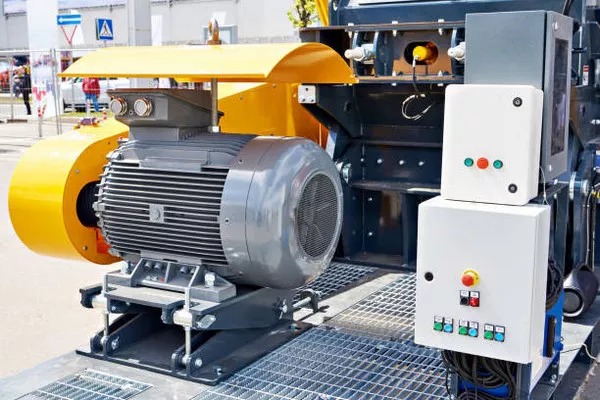In today’s world, portable generators have become indispensable tools for ensuring a continuous power supply during outages, camping trips, or construction projects. These versatile machines provide a reliable source of electricity when conventional power sources are unavailable. However, a critical question that often arises is whether it is necessary to ground a portable generator. The short answer is yes, grounding your portable generator is crucial for safety reasons. This article delves into the importance of grounding, the potential risks of neglecting it, and the proper methods to ensure your portable generator is safely grounded.
Understanding Grounding and Its Purpose
Grounding, in the context of electrical systems, refers to the process of connecting an electrical circuit to a reference ground, typically the earth. This connection stabilizes the voltage levels in the system, provides a path for fault currents, and reduces the risk of electrical shock. For portable generators, grounding helps in:
Safety: Proper grounding minimizes the risk of electrical shock by ensuring that any stray electrical currents have a safe path to the ground.
Equipment Protection: Grounding protects your generator and connected appliances from voltage spikes and electrical surges, which can cause significant damage.
Compliance: Adhering to grounding requirements ensures compliance with local electrical codes and standards, avoiding potential legal issues.
Risks of Not Grounding a Portable Generator
Failing to ground a portable generator can lead to several hazardous situations:
Electrical Shock: Without proper grounding, there is an increased risk of electrical shock, which can be fatal. Stray electrical currents may travel through the body of a person operating or touching the generator.
Fire Hazard: Ungrounded generators can cause electrical arcs or sparks, leading to fires, especially in flammable environments.
Damage to Equipment: Electrical surges and voltage spikes can damage both the generator and any connected devices, leading to costly repairs or replacements.
Regulatory Violations: Not grounding your generator may result in non-compliance with local electrical codes, potentially leading to fines or other legal consequences.
When Is Grounding Necessary?
The necessity of grounding a portable generator depends on how it is used and the specific setup. According to the National Electrical Code (NEC), a generator must be grounded if it meets certain criteria:
Separately Derived System: If your generator’s neutral is bonded to the frame, it is considered a separately derived system, and grounding is required.
Non-Integrated Generator: If your generator does not have a neutral-ground bond or is not connected to a grounding system through a transfer switch, it must be grounded.
Using Extension Cords: If you are using extension cords to power appliances directly from the generator without connecting to a home or building’s electrical system, grounding is recommended.
How to Properly Ground a Portable Generator
Grounding a portable generator involves connecting the generator to a grounding rod driven into the earth. Here are the steps to properly ground your generator:
Check Manufacturer’s Instructions: Before starting, review the generator’s user manual for specific grounding instructions provided by the manufacturer.
Obtain the Necessary Equipment:
- Grounding rod: Typically a copper rod, at least 4 feet long.
- Copper grounding wire: The wire should be of sufficient gauge to safely conduct fault currents.
- Clamps and connectors: To securely attach the grounding wire to the grounding rod and the generator.
Drive the Grounding Rod: Using a hammer or mallet, drive the grounding rod into the ground at least 8 feet deep for optimal conductivity. The rod should be placed in moist soil for better grounding.
Connect the Grounding Wire: Attach one end of the grounding wire to the grounding rod using a clamp. Ensure the connection is tight and secure.
Connect to the Generator: Attach the other end of the grounding wire to the generator’s grounding terminal or frame. Again, ensure a secure connection to maintain an effective ground.
Regular Inspections: Periodically check the connections and the condition of the grounding rod and wire to ensure they remain effective.
Common Misconceptions About Grounding Portable Generators
There are several misconceptions surrounding the grounding of portable generators. Clarifying these can help ensure proper safety practices:
All Generators Are Pre-Grounded: Some believe that all portable generators come pre-grounded and require no additional grounding. While some models do have built-in grounding systems, not all do, and it is essential to verify your specific model’s requirements.
Grounding Is Only Needed Indoors: Grounding is crucial regardless of whether the generator is used indoors or outdoors. Outdoor use can still pose significant electrical hazards without proper grounding.
Grounding Only Matters for High-Power Generators: The power output of the generator does not determine the need for grounding. Even small portable generators require grounding to ensure safety.
Special Considerations for Different Environments
Grounding practices may vary depending on the environment in which the generator is used. Here are some special considerations:
Construction Sites: Construction sites often have specific grounding requirements to comply with occupational safety standards. Grounding ensures worker safety and protects sensitive equipment.
Recreational Use: When using a generator for camping or RVs, grounding is still important. Portable generators used in remote areas can be particularly hazardous without proper grounding due to the lack of additional safety infrastructure.
Home Backup: For home backup power, especially when integrating with a home’s electrical system, grounding through a transfer switch is essential. This setup not only grounds the generator but also isolates it from the utility grid, preventing backfeeding.
See Also A GUIDE TO HOOKING UP A GENERATOR TO POWER YOUR HOME
Conclusion
Grounding your portable generator is a fundamental safety practice that should not be overlooked. Proper grounding ensures the safety of individuals, protects equipment, and ensures compliance with electrical codes. By understanding the importance of grounding and following the correct procedures, you can operate your portable generator safely and effectively. Always refer to the manufacturer’s guidelines and consult a professional electrician if you are unsure about the grounding requirements for your specific generator model. Prioritizing safety through proper grounding can prevent accidents, protect your investment, and provide peace of mind during power outages and other critical situations.

